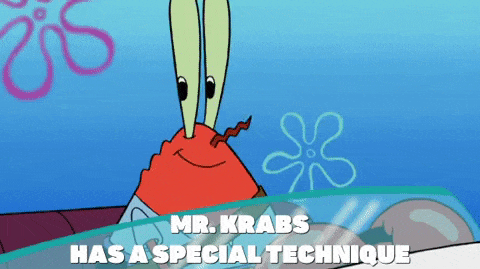Worried About Coral Reef Erosion? These Crabs Are On The Job!
A novel approach to one serious problem appears to be working already. Spongebob Squarepants/Giphy
Spongebob Squarepants/Giphy
News that is entertaining to read
Subscribe for free to get more stories like this directly to your inboxThere is no shortage of environmental concerns facing our planet these days, but one that doesn’t always get as much attention is the decline of the world’s coral reefs.
In Florida, roughly 90% of this key natural resource has been eradicated — and half of the world’s corals have been wiped out over the past few generations due to factors such as disease and rising temperatures.
In search of a solution
If you’re not quite sure what a coral reef is or what it does, here are a few reasons it’s so important to save them:
- They provide an underwater habitat for roughly one-fourth of all marine life.
- They help provide a natural barrier against storms approaching land.
- They can even be used to create new types of medication.
So scientists are naturally motivated to reverse the current trend … and one intriguing strategy to do so involves hundreds of thousands of crabs.
Attacking the algae
While it’s not the only threat to Florida’s coral reefs, algae is a danger to their sustainability and growth. That’s why experts say that unleashing a massive number of crustaceans can help coax these reefs back to health.
Jason Spadaro is one such scientist, and he in the process of breeding about 250,000 crabs annually in order to address the problem. All these little critters need to bring with them is their appetite.
Unfortunately, there’s been a marked decrease in the number of sea creatures that typically munch on the type of seaweed that can smother corals and cause entire reefs to die. Crabs, however, are voracious consumers of this so-called microalgae.
A preliminary study found that the strategy works. In areas stocked with crabs for one year, there was 85% less algae than on the reefs than in the regions without them.
 Why Is The Aging Voyager 1 Probe Sending Back Incoherent Communications?
It's been speaking gibberish for a few months and officials are concerned.
Why Is The Aging Voyager 1 Probe Sending Back Incoherent Communications?
It's been speaking gibberish for a few months and officials are concerned. One Woman’s Massive Donation Is Wiping Out Tuition At This Medical School
Her inheritance came with the instruction to do "whatever you think is right."
One Woman’s Massive Donation Is Wiping Out Tuition At This Medical School
Her inheritance came with the instruction to do "whatever you think is right." Woman’s Pets Will Inherit Her Multimillion-Dollar Fortune, Not Her Kids
It's not the first time four-legged heirs were named in a will.
Woman’s Pets Will Inherit Her Multimillion-Dollar Fortune, Not Her Kids
It's not the first time four-legged heirs were named in a will.